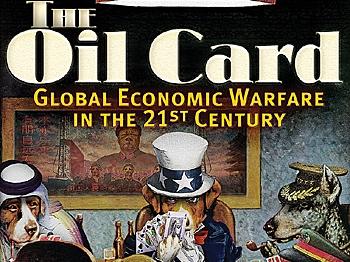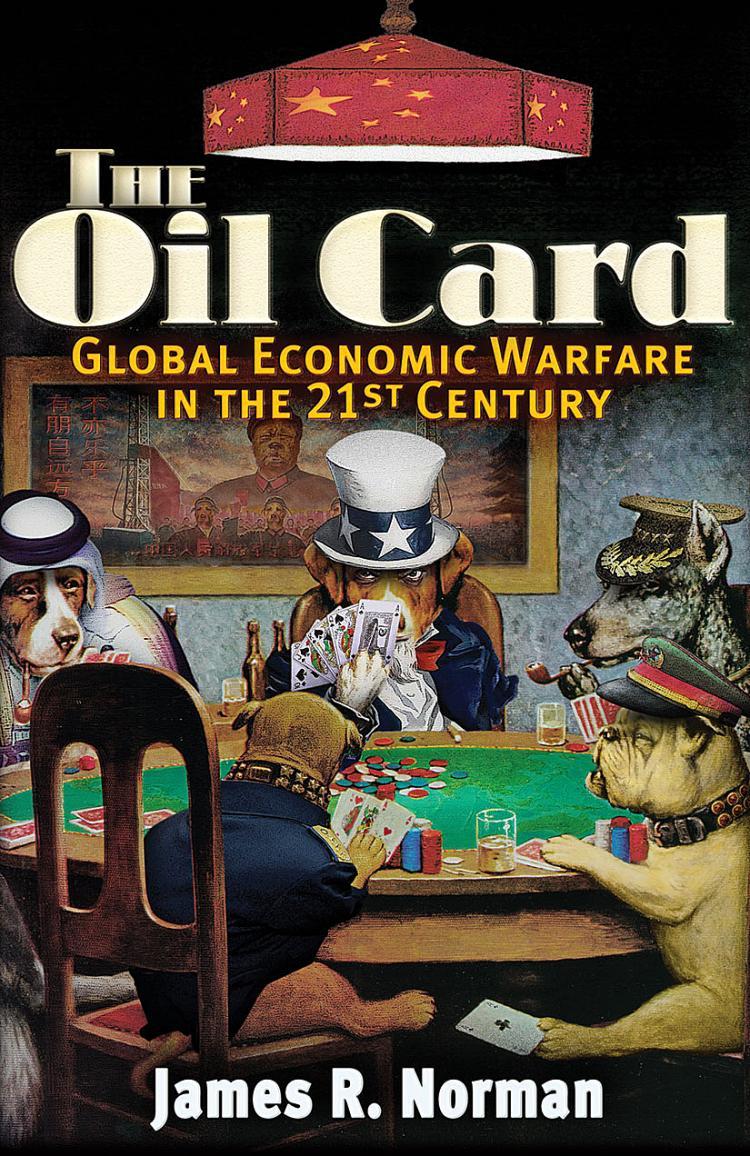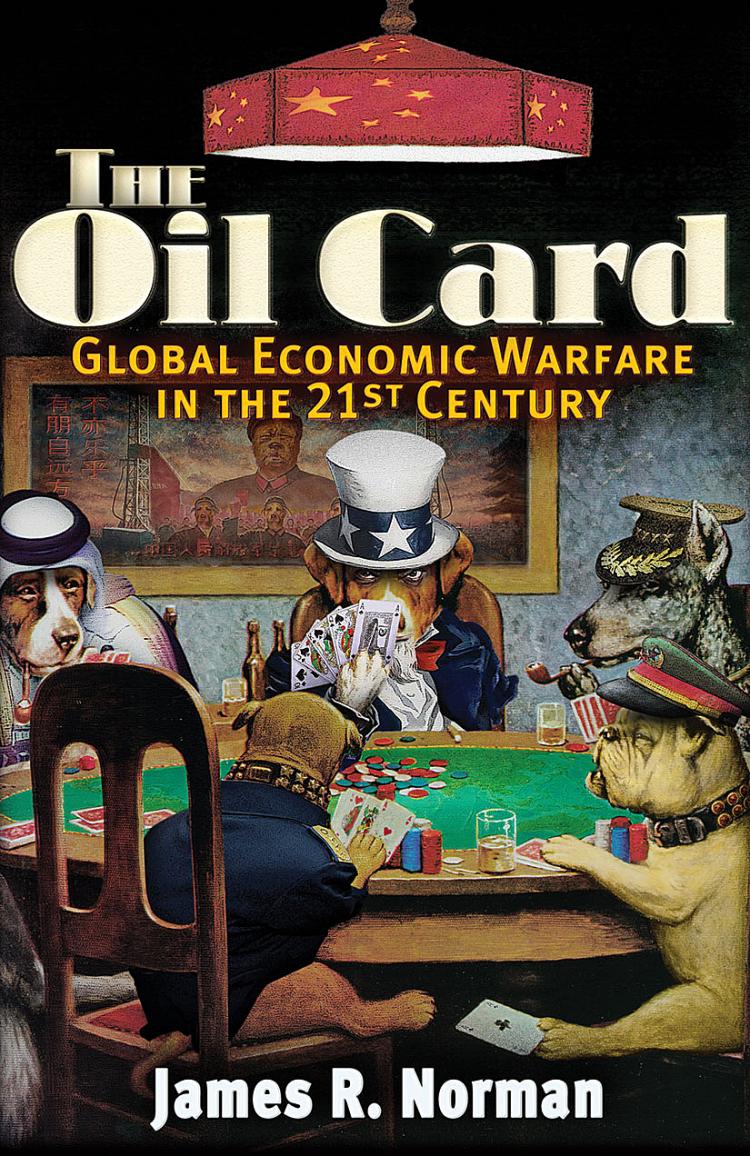James R. Norman says in The Oil Card that the price you pay at the pump is not determined by the free market. That news is not terribly shocking or new. Supply increased as demand remained largely unchanged. The price of oil soared more than 12-fold in less than 10 years—under $12/barrel in 1998 to nearly $140 by mid-2008.
Oil had been trading steadily at $20 /barrel for the previous 15 years. According to Norman, the price of a barrel of crude oil futures reached $100 in December 2007 which, according to respected analysts, was as much as $50 above what it should be based on demand.
Another sign of market rigging is the huge volume of futures trading, “far beyond the normal needs of industry hedging activity,” says Norman.
So, who is behind the price manipulation and why? Speculators? That’s what the conventional wisdom says, but Norman argues that the explanation has nothing to do with people wanting to make a killing on the market.
Norman’s explanation is also not that the oil cartels are greedy for profits. Nor is Saudi Arabia holding back production. All of the above factors, in fact, were driving the price of a barrel of oil down, says Norman, and brought on a price collapse in the 1980s with a glut of oil.
Norman’s thesis is that some unnamed entity in the U.S government tied to our national security manipulates the price upward.
While Norman doesn’t identify who is responsible, he does have an explanation for why oil prices are manipulated much higher than would be the case under true free market conditions.
It’s to play keep-away with our number one strategic competitor, the People’s Republic of China (PRC), and make them pay much more to sustain their economic juggernaut. While high prices hurt us, it hurts them a lot more.
Oil had been trading steadily at $20 /barrel for the previous 15 years. According to Norman, the price of a barrel of crude oil futures reached $100 in December 2007 which, according to respected analysts, was as much as $50 above what it should be based on demand.
Another sign of market rigging is the huge volume of futures trading, “far beyond the normal needs of industry hedging activity,” says Norman.
So, who is behind the price manipulation and why? Speculators? That’s what the conventional wisdom says, but Norman argues that the explanation has nothing to do with people wanting to make a killing on the market.
Norman’s explanation is also not that the oil cartels are greedy for profits. Nor is Saudi Arabia holding back production. All of the above factors, in fact, were driving the price of a barrel of oil down, says Norman, and brought on a price collapse in the 1980s with a glut of oil.
Norman’s thesis is that some unnamed entity in the U.S government tied to our national security manipulates the price upward.
While Norman doesn’t identify who is responsible, he does have an explanation for why oil prices are manipulated much higher than would be the case under true free market conditions.
It’s to play keep-away with our number one strategic competitor, the People’s Republic of China (PRC), and make them pay much more to sustain their economic juggernaut. While high prices hurt us, it hurts them a lot more.







